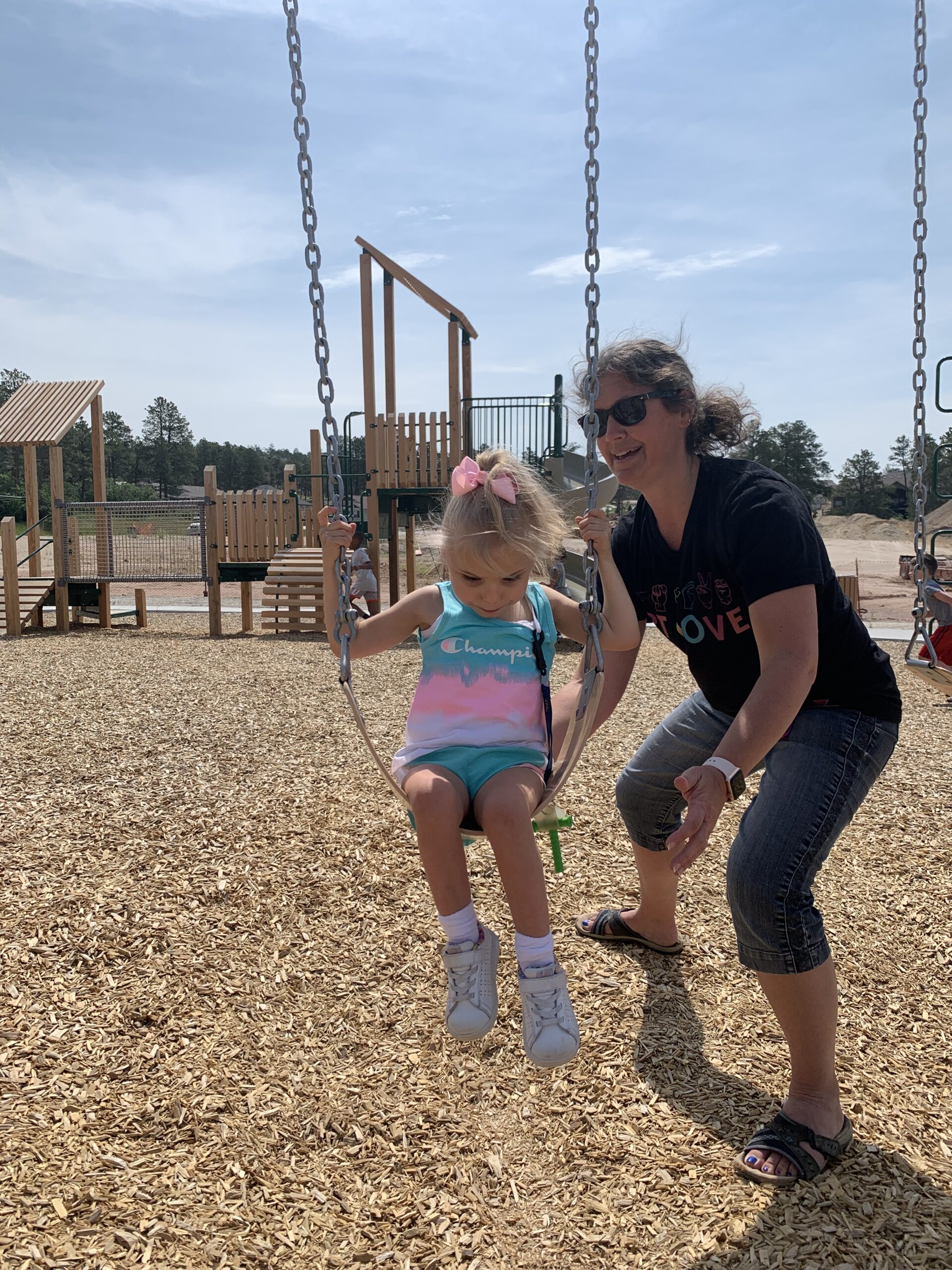Deafness usually refers to hearing loss that is so severe that there is very little or no functional hearing. Someone who is deaf may or may not use amplification such as a hearing aid or cochlear implant. Whereas people diagnosed as hard of hearing usually have some level of residual hearing and often use amplification to increase their ability to hear others.
When a diagnosis is first made of deafness of any level, children are quickly referred for speech therapy to help them and their families learn how to best support their language development. However, speech development may not be the only concern for these kiddos. Many conditions that can cause hearing loss can also cause vestibular disorders including the frequent use of antibiotics to treat recurrent ear infections. Vestibular hypofunction can result in difficulty maintaining visual focus and therefore impact reading and balance, lead to fear of movement, and present as dizziness. This is because the vestibular and auditory (hearing) portions of the inner ear are attached, sharing structures.
It is not only antibiotics that can cause both hearing loss and vestibular hypofunction. As parents and caregivers for children who are deaf or hard of hearing, we need to be aware of the diagnoses that cause hearing loss and increase the risk of vestibular disorders, including meningitis, viral infections including labyrinthitis and vestibular neuritis, abnormal vestibular anatomy or structure, cytomegalovirus, and many syndromes including Usher, CHARGE, Pendred, Waardenburg, and Alport.
Parents and caregivers should to be on the lookout for the most common signs and symptoms of vestibular disorders, especially if your kiddo has any of the conditions listed above. Things to watch out for are dizziness, poor balance, delayed meeting of milestones, difficulty with or disorganized reading or writing, sensitivity to movement (either craving or avoiding), unsteady gait, poor posture (including leaning), difficulty with coordinating eye-hand or eye-foot movement. These issues can be difficult to recognize because kiddos are excellent at masking and accommodating for balance deficits. Some kiddos make up for a lack of balance with speed and it is easy to miss that early running may actually be due to poor balance. Also, our youngest kiddos don’t know that it isn’t normal to feel dizzy, especially if that feeling is all they have ever known. Even as they do learn that dizziness isn’t normal, they may struggle to describe what they are feeling. Finally, many of the symptoms of vestibular hypofunction can be confused with other disorders and so may be treated as such without realizing there is an alternate, underlying cause.
You should encourage movement at an early age for kiddos who are hard of hearing because we know that moving their body is how kiddos make sense of vestibular input. This begins with rocking side to side and forward to back while holding them in your arms. You can build to rolling and bouncing and practicing falling. As kids get older you can help them swing and jump. All kiddos should have this movement but some kiddos with hearing loss may avoid it during normal daily routines, even though it is especially important to their development.
If your kiddo has been diagnosed with a hearing loss, is struggling with their balance, isn’t meeting their milestones, or if you have any other questions about how to support your kiddo’s growth and development reach out for an evaluation. Our therapists at Kid Physical have over 34 combined years of experience offering specialized, holistic healthcare for children of all ages. Our top priority is providing support for both caregivers and children so that they can reach their highest potential.

